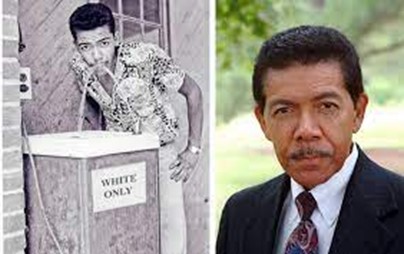Keeping history and hope alive: Photographer Cecil Williams' journey through racial inequality
By: FAITH LOMAX
Mar 15, 2022

On the morning of March 1, noted civil rights photographer Cecil Williams of Orangeburg joined Panther reporters via Zoom to give students insight on one of the most impactful times in history: the civil rights era from 1950 to 1970.
“This was the period of most change,” Williams said. That change specifically being for people of color.
Although the civil rights era lasted for such a short period of time, the fight for racial equality is far from over, Williams said.
He told students that just recently, racial tension that had been hidden was brought back to America’s forefront during the four-year presidency of Donald Trump. During said presidency, individuals were no longer afraid to hide their racist positions, thus making it possible for 26 states to try to implement laws that will limit voting.
“We don’t want to go back to that,” Williams said. “We will prevail and vote.”
The Orangeburg native went on to recall his youth, allowing students a vivid glimpse of what his life was like as a child in the midst of this trying era.
In society today, the daily activities and opportunities for people of color have progressed tremendously. For example, the only thing that may stop someone from using a public dressing room today would be a factor such as COVID-19, but for Williams and many others, the color of their skin was what determined simple activities such as this.
The racial limitations did not stop at dressing rooms. Williams said he couldn’t place orders at the front of restaurants, there was no drinking from the whites-only water fountains, and at most establishments he was unable to use the restroom.
“I am a child of segregation,” Williams said.
During this time there were little to no jobs for Blacks and because of this, Williams’ parents were limited to taking on positions as teacher and tailor. All opportunities were limited for the Black community due to racism and Jim Crow laws.
Laws kept people segregated and when the law didn’t segregate, tradition did.
“These are the days I grew up in,” Williams said.
Growing up in the midst of turmoil and experiencing the disadvantages of racial inequality encouraged Williams to shine light on history in a unique manner. A few years ago he founded the Cecil Williams South Carolina Civil Rights Museum in Orangeburg.
“I felt that it was right to recognize people who created progress,” Williams said.
Lee